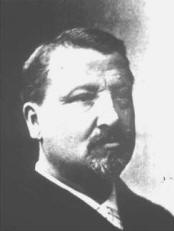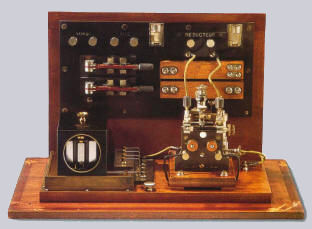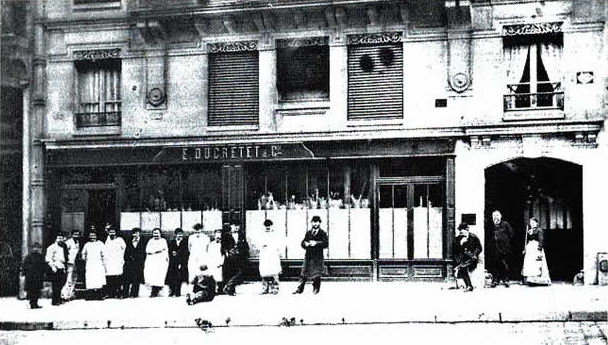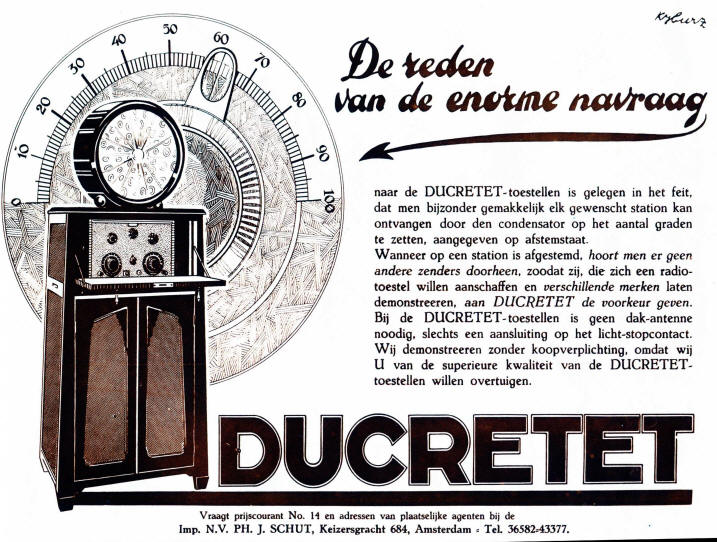|
|
|
 |
| |
 |
Eugène Ducretet was
born in 1844 in Paris. When he
was about twenty years old he founded a factory for
electrical equipment that brought him international
acclaim. His clients were laboratories, schools and
universities. His catalogue contained batteries based on
the Leyden jar, Barlow's disk, experimental
electro-magnetic engines, Whimhurst machines, Tesla
apparatus, and a
high frequency current generator. His
|
 |
|
factory also made
voltmeters, ampere meters and equipment for telegraphs
and telephone. The name Ducretet is associated with the
early development of wireless in France; he was an early
experimenter and maker of wireless apparatus.
On
November 5th, 1898,
a year after Marconi's experiments, Eugène Ducretet
started his own experiments, using a mast on the third
level of the Eiffel tower. A radiotelegraphic signal in
Morse was transmitted and received using the receiver
with coherer pictured above, placed in the Panthéon,
a distance of 4 km.
Thus started TSF - Télégraphie sans fil -
wireless - in France. Descriptions of his experimental
transmitters and receivers were shown in Electrical
World and Engineer in 1899. Ducretet wrote a
wireless telegraphy guide in 1901. Ernest Roger was a
collaborator in the Ducretet experiments as early as
1898. |
| |
|
 |
|
Ateliers
Ducretet, rue des Ursulines 21 in Paris |
| |
| Ducretet died in 1915, leaving the
company in the hands of his son Fernand and partner
Ernest Roger. During World War One, the Ducretet and
Roger shops were devoted entirely to the manufacture of
military communications apparatus and special equipment
for the Navy such as periscopes and microphones. |
| The first radios were made from war
supplies. Receivers were made by combining devices like
tuners and high-and low-frequency amplifiers. For
practical reasons these units were later stacked and the
"piano" form arose. |
|
In
the years 1920-1930 the development of radio broadcasting
in France really began with brands like Ducretet
(continued under the name
Société des Etablissements Ducretet, S.E.D.) and
others, like Péricaud, Lemouzy, Hurm and Vitus. They were
the more traditional makers. SEC, SET, Bouchet et Aubignat,
Omégadyne, Planchon and Defay, sometimes chose very
original designs. Brands like PHAL, Huet,
Radio-Techna and Irradia made radios for the more
expensive segment of the market. When Philips started
serial production of radios around 1930, many of these
brands disappeared. Ducretet was taken over by Thompson
in 1931. |
|
 |
| An advertisement
from 1929 of the Dutch
importer of Ducretet, Ph. J. Schut in Amsterdam |
|
|
|